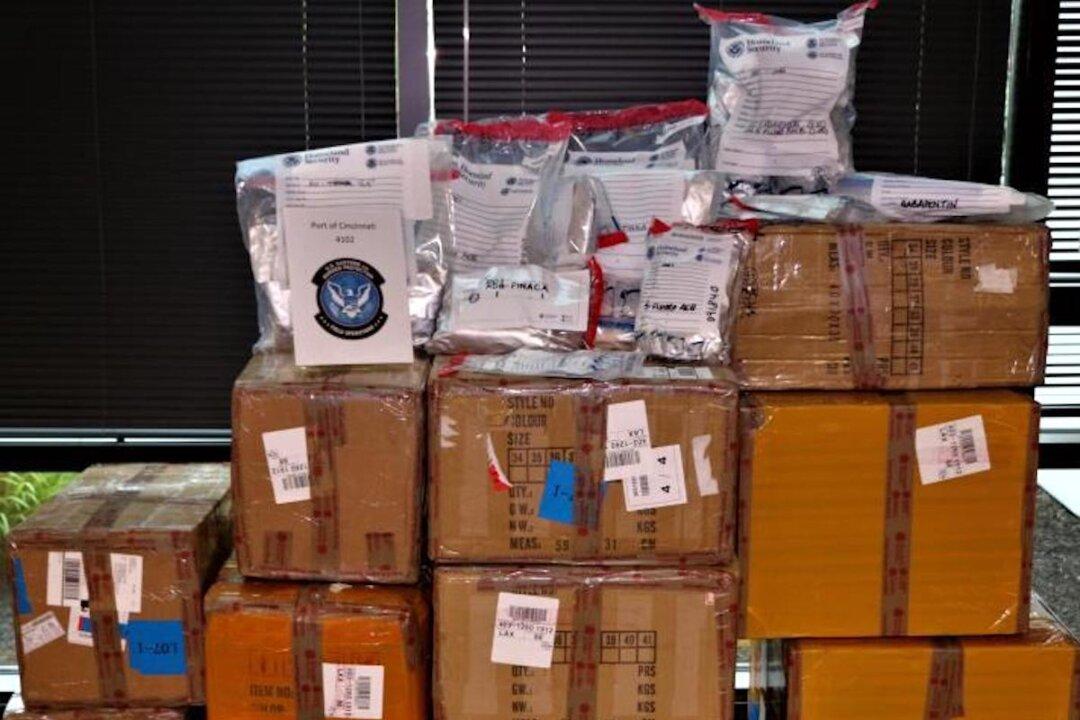U.S. customs officials in Cincinnati recently seized 530 pounds of illicit narcotics and other controlled substances in a shipment originating from China, which had a street value of over $2 million.
The cargo also contained other illicit goods such as counterfeit products and prohibited food items.





